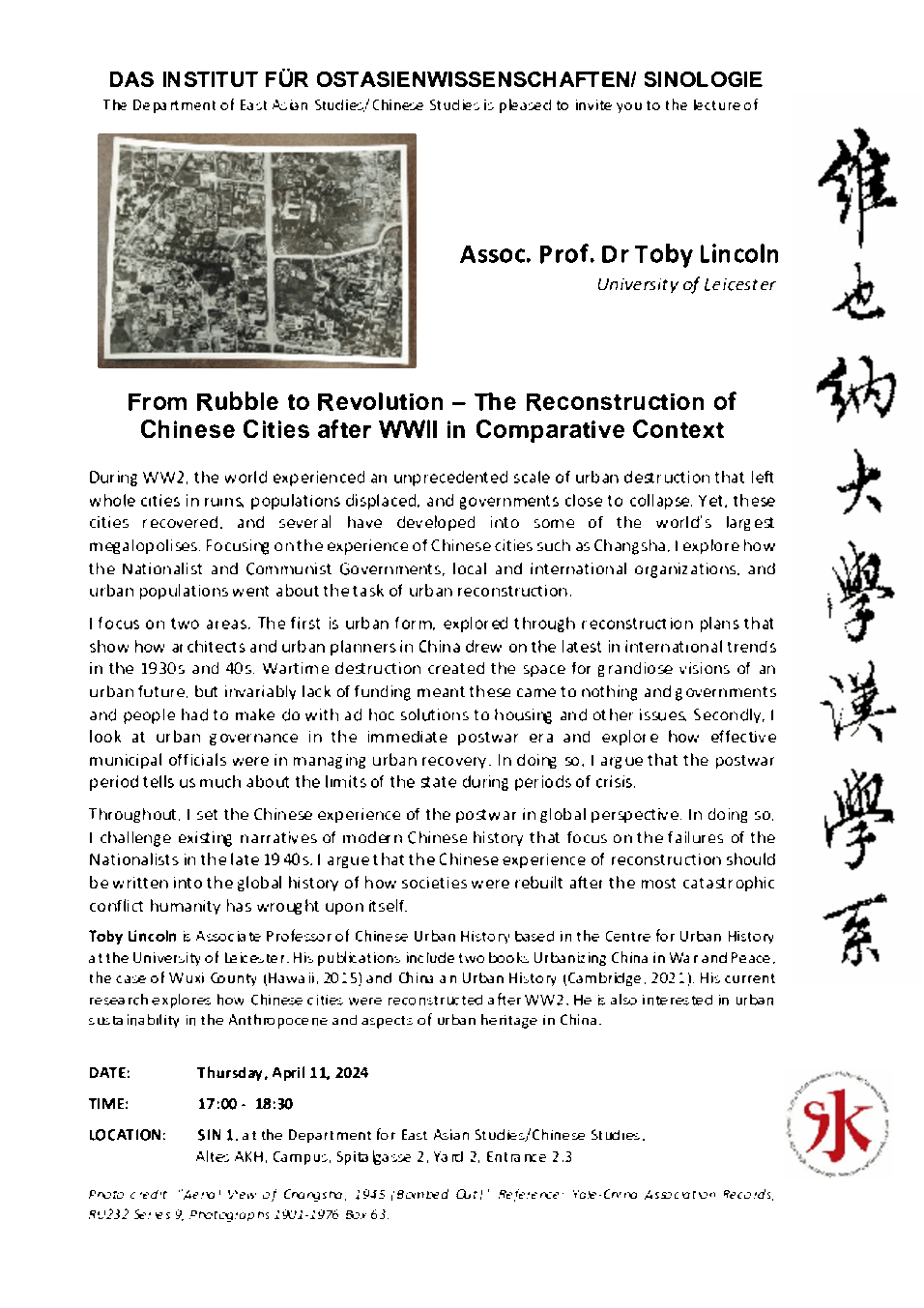During WW2, the world experienced an unprecedented scale of urban destruction that left whole cities in ruins, populations displaced, and governments close to collapse. Yet, these cities recovered, and several have developed into some of the world’s largest megalopolises. Focusing on the experience of Chinese cities such as Changsha, I explore how the Nationalist and Communist Governments, local and international organizations, and urban populations went about the task of urban reconstruction.
I focus on two areas. The first is urban form, explored through reconstruction plans that show how architects and urban planners in China drew on the latest in international trends in the 1930s and 40s. Wartime destruction created the space for grandiose visions of an urban future, but invariably lack of funding meant these came to nothing and governments and people had to make do with ad hoc solutions to housing and other issues. Secondly, I look at urban governance in the immediate postwar era and explore how effective municipal officials were in managing urban recovery. In doing so, I argue that the postwar period tells us much about the limits of the state during periods of crisis. Throughout, I set the Chinese experience of the postwar in global perspective. In doing so, I challenge existing narratives of modern Chinese history that focus on the failures of the Nationalists in the late 1940s. I argue that the Chinese experience of reconstruction should be written into the global history of how societies were rebuilt after the most catastrophic conflict humanity has wrought upon itself. Toby Lincoln is Associate Professor of Chinese Urban History based in the Centre for Urban History at the University of Leicester. His publications include two books Urbanizing China in War and Peace, the case of Wuxi County (Hawaii, 2015) and China an Urban History (Cambridge, 2021). His current research explores how Chinese cities were reconstructed after WW2. He is also interested in urban sustainability in the Anthropocene and aspects of urban heritage in China.
For more information, please refer to the attached PDF
DATE: Thursday, April 11, 2024
TIME: 17:00 – 18:30
LOCATION: SIN 1, at the Department for East Asian Studies/Chinese Studies, Altes AKH, Campus, Spitalgasse 2, Yard 2, Entrance 2.3

